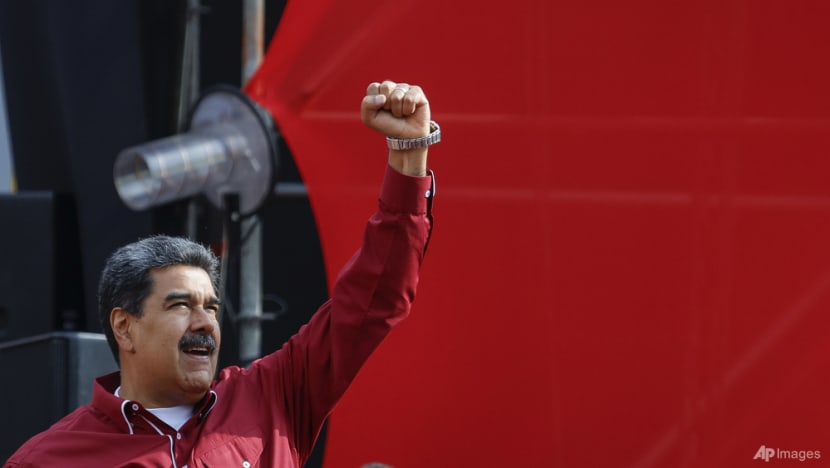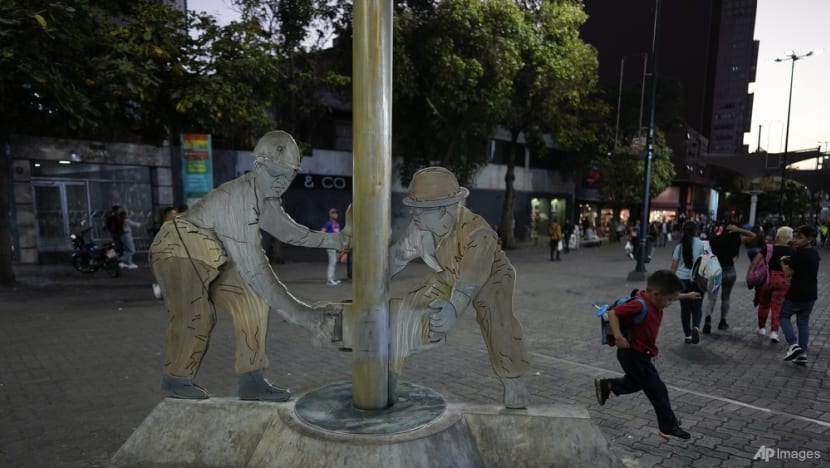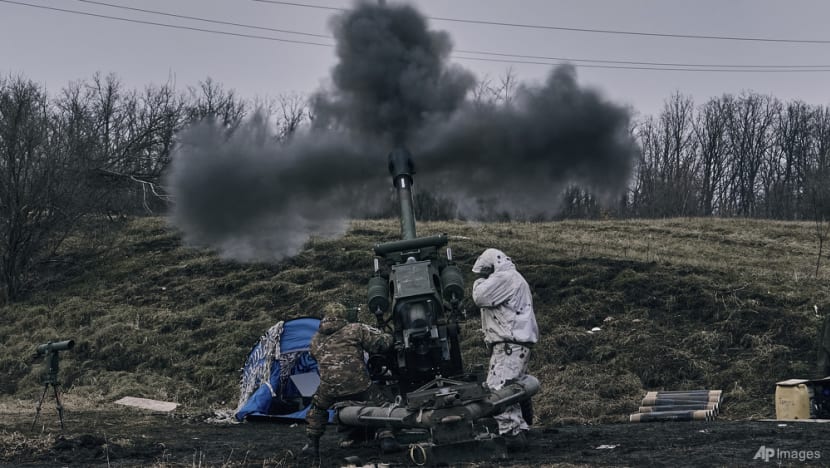With largest proven oil reserves in the world, Venezuela eyes BRICS membership to boost declining economy
The BRICS bloc, which comprises the five major emerging national economies of Brazil, Russia, India, China and South Africa, is expected to make a decision on new members at the 15th BRICS Summit in Johannesburg in August.

CARACAS, Venezuela: The oil-rich South American nation of Venezuela has submitted its name as an official candidate to join the BRICS alliance.
The BRICS bloc, which comprises the five major emerging national economies of Brazil, Russia, India, China and South Africa, is considering expanding to include other emerging economies.
A total of 19 countries have expressed their interest in joining the grouping, with a decision expected at the 15th BRICS Summit in Johannesburg in August.
Brazil, Russia and China are in support of Venezuela’s candidacy, as the group works to build up its influence in Latin America.
“We are going to discuss all official requests and take them to the BRICS, then we will decide. If anybody asks me what I think, I would say that I am in favour,” said Brazilian President Luiz Inacio Lula da Silva, whose country neighbours Venezuela.
A CHANGING WORLD
Venezuela’s President Nicolas Maduro said the world is changing, with the BRICS nations leading the way.
"In this new world of geopolitics, a very important movement has emerged – the BRICS, a powerful movement that undoubtedly becomes today the spearhead or the vanguard of the processes of change, of world geopolitics (and) of world power,” he said.
The oil-producing country has been isolated for the past four years, after Europe, the United States and Canada imposed sanctions on it in 2019 for allegedly undermining democracy.
It is now trying to re-enter the world stage as a key player in foreign markets, and also aiming to send a political message, said experts.
International relations professor Felix Arellano from the Venezuelan Central University told CNA: “The important thing for the Venezuelan government is being in the photo of the meeting, because that implies that the country is incorporated in the international community, a way to say ‘I have legitimacy, I have political strength’.”
Most South American countries are currently dominated by leftist governments which are shifting away from the US, and towards Russia and China.
The decision to admit a country into the BRICS alliance as a full member has to be unanimous.
Membership in the group could strengthen a troubled Venezuelan economy, which has declined more than 90 per cent in the last decade, by securing stronger commercial bonds with allies, access to international financing, and new ways to bypass economic sanctions.
VENEZUELAN OIL
Venezuela's main asset to offer is oil, as it holds the largest proven oil reserves in the world.
The BRICS alliance currently controls 8.7 per cent of the world's oil reserves. The figure would rise to 26.2 per cent if Venezuela joins.

However, the current state of the Venezuelan oil industry is a concern, having collapsed due to corruption and mismanagement, a decline in oil prices, and sanctions imposed by the US.
It contracted by about two-thirds in the last decade.
Economist Antonio Paiva, president of economic consultancy Apecca, told CNA: “One of the advantages is that we would sell some barrels of oil. If we were producing 3 million barrels as we used to, it would be a good deal. But we are producing around 700,000 to 800,000 barrels.”
Russia’s invasion of Ukraine in February last year has helped boost Venezuelan oil.

“The war in Ukraine has given more space to Venezuela and its government because of its oil. Oil has become an increasingly strategic resource due to the war,” said Prof Arellano.
“But human rights have not been forgotten.”
The government of President Maduro has been questioned globally over its human rights record, with Venezuela the only country in the Americas facing an investigation by the International Criminal Court.
















